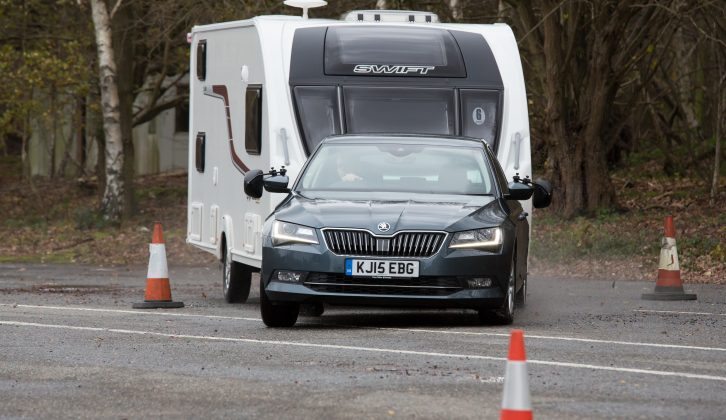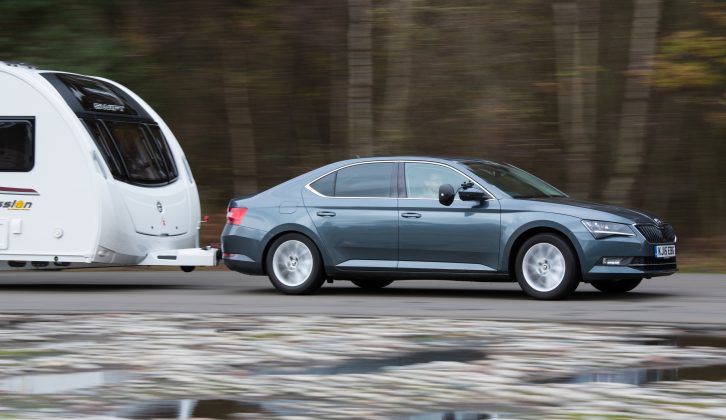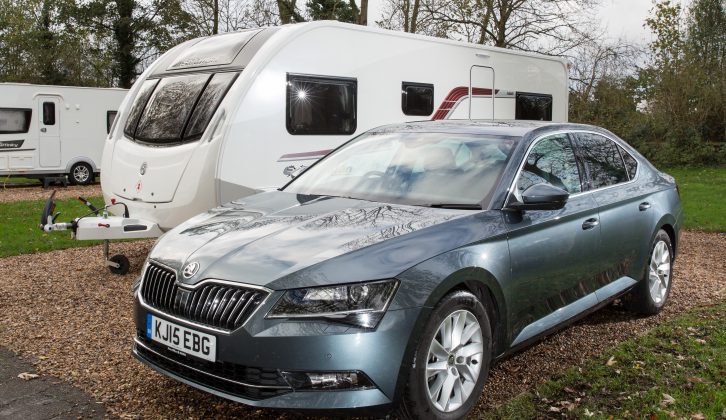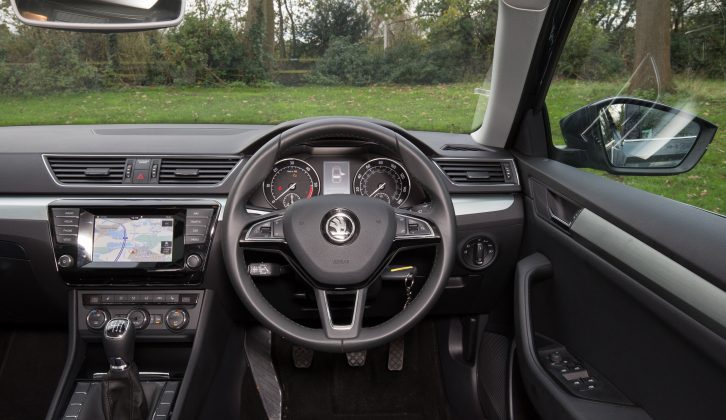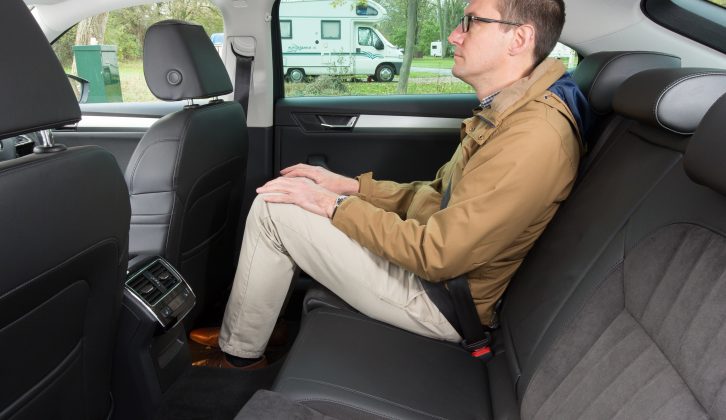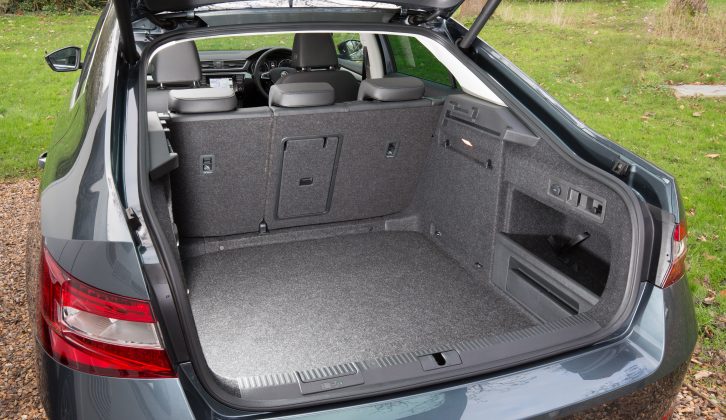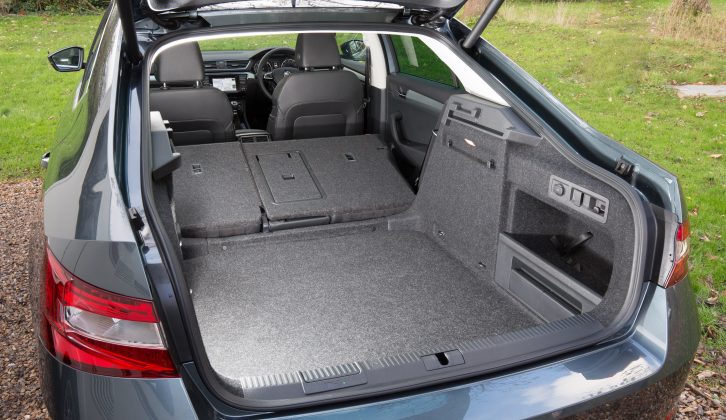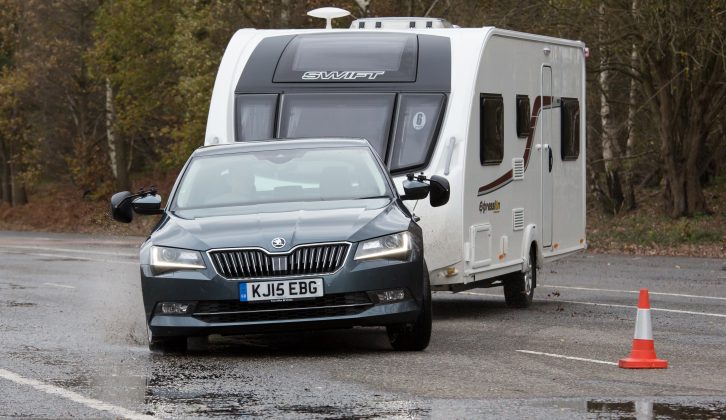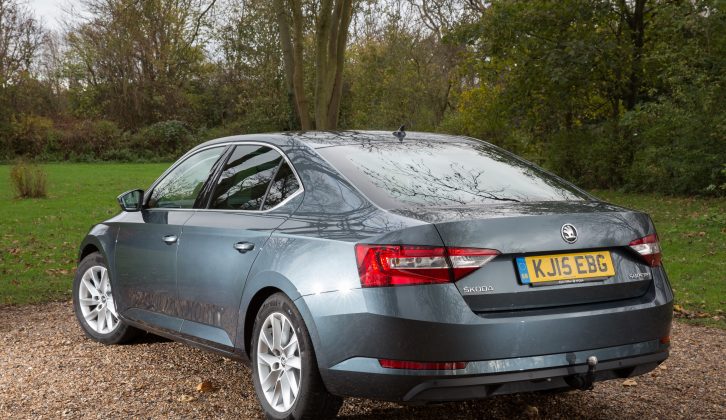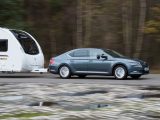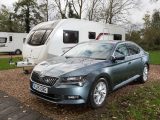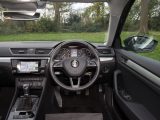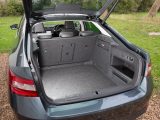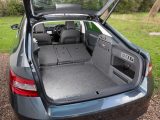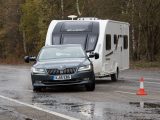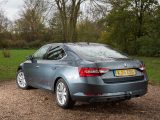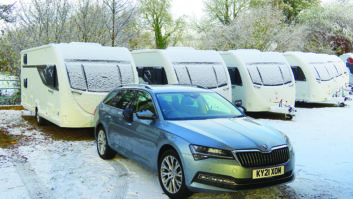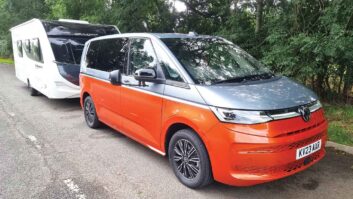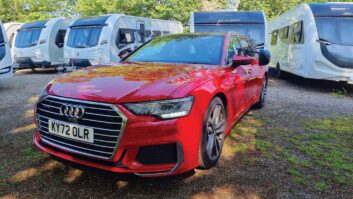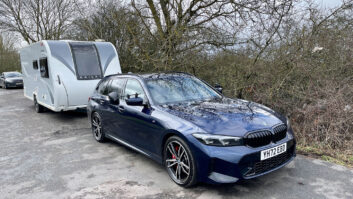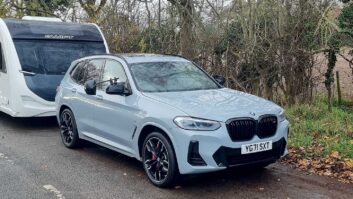Verdict
We don’t give five-star verdicts very often. But the Superb deserves every one of them.
Our only reservation of any significance is the Škoda’s low kerbweight, which makes for quite a modest 85% match figure. But given how well the Škoda pulled an 89% match in a winter gale, we couldn’t quibble with any experienced and competent tow car driver pulling matches between 85% and 100% with the Superb.
We look for stability above all else in a tow car, and the Škoda feels unshakeable on the motorway and in control in emergency manoeuvres.
There may be more powerful engines in the range than the 148bhp 2.0-litre diesel, but this version strikes a sensible balance between performance, affordability and running costs. There’s enough power to pull any sensibly matched caravan.
In everyday driving, the Superb is the kind of car that could fit into your life very easily. It is refined at speed and composed on country roads. Whatever the journey, the Superb just gets on with the job.
It’s the cabin that really secures the Škoda’s place at the top of the family car class. With its improved finish the Superb now has more showroom appeal, and it leaves its rivals behind when it comes to space and practicality. You can really stretch out in the back of the Superb, and the boot is huge.
What finally cements that fifth star is that the Škoda is this good, and yet so affordable to purchase and run.
It’s subsequently not surprising to see that we included this model in our guide to the best used tow car.
Pros
This is a seriously impressive tow car
As a solo drive, it is very competent and just gets on with the job
There’s loads of space for people and luggage
It is competitively priced
Cons
For its size, it is relatively light
The Škoda Superb has long been the family car to choose if space is your top priority. The new Superb still offers ample room for passengers and their bags. Now, though, it promises a better drive, a more polished cabin and improved economy and emissions.
It’s also very keenly priced. The range starts from £18,460. Our 2.0 TDI 150PS SE Business test car sits in the middle of the range, with a surprisingly affordable list price of £22,090.
Before a wheel turns, we know the Superb is a lot of car for the money. We need to find out what tow car ability it has, given that it is light for its size. Is the 150PS engine up to the job, and how stable is the Škoda at speed?
Both its stability in high winds and performance in emergency manoeuvres are excellent
Towing
For such a big car, the Škoda doesn’t weigh much. Even adding 75kg for the driver to the kerbweight in Škoda’s brochure only gives a weight of 1485kg. That means a modest 85% match figure of 1262kg. Both major caravanning clubs advise that experienced tow car drivers can tow matches of 85-100% and, if ever a car gave us the confidence to pull a heavier tourer, it’s this Škoda.
We matched the Superb to a Swift Expression 586 with a Mass in Running Order of 1325kg – a match of 89%. The Škoda handled it with ease. Our testing took place in very windy conditions. In the mirrors we could see the tourer moving around, but the driver hardly needed to move the steering wheel from straight ahead. Even after strong gusts, the car simply pulled the caravan straight again.
The winds hadn’t abated by the time we arrived at the test track and took the Superb through the lane-change test. The Superb impressed with precise steering, plenty of grip and no pushing from the van. Given the weather, the manoeuvre was undramatic.
The Škoda’s engine is familiar from our Octavia Scout long-term test car and many other Volkswagen Group cars. The 150PS (148bhp) peak power figure is less important than the 251lb ft of torque, delivered between 1750 and 3000rpm. That broad spread of mid-range pull makes for purposeful acceleration. Going from 30-60mph, as you may when joining the motorway, took 12.8 seconds.
The car’s gearing has been chosen for economy, though, so at times we found ourselves changing down twice when one gearshift might have been enough. The steady 50-60mph time of 16.4 seconds is more a reflection of the high fifth gear than any shortcoming with the engine. Away from the test track this was most noticeable on hilly roads, but it’s more a characteristic than a fault. As long as the car is in the right gear, the 2.0-litre engine has plenty of pulling power. In fact, on wet Tarmac it’s possible to spin the front wheels briefly when pulling away if the driver is heavy-footed.
In the hill-start test, the Superb’s electronic parking brake held the car and caravan still on the 1-in-10 slope. Some drivers hate electronic brakes, but we’d rather flick a switch for reliable braking on a slope than yank hard on a handbrake lever.
The parking brake released smoothly and the Superb pulled to the top of the slope with just a little clutch slip. Tackling the slope in reverse caused a slight smell from the clutch, though. In normal towing, we found the Superb’s brakes easy to apply smoothly, with plenty of power when we pushed hard. In an emergency stop, the Škoda needed just 10.1m to halt from 30mph – impressive on a damp track, especially without shunting from the caravan.
As a tow car, the Superb is thoroughly impressive. It’s lighter than some rivals, but its stability in high winds and performance in emergency manoeuvres are excellent.
Everyday Driving
In everyday driving, the Superb is thoroughly capable.
Motorways play to the Škoda’s strengths. It is comfortable and refined at speed and, while you get some wind and road noise, it is not intrusive. It may not be as quiet as a Volkswagen Passat, but it is not far off.
Around town you’re aware of the Škoda’s considerable size, but it doesn’t feel bulky or unwieldy. The smooth clutch and gearbox mean stop-start traffic isn’t a chore, but if you’d rather leave the car to change gear for you, the DSG semi-automatic transmission adds another £1400 to the price.
On country roads the Superb corners neatly, with precise steering and strong grip. Our test car was fitted with the optional Dynamic Chassis Control (£750), with a choice of ‘Comfort’, ‘Normal’ and ‘Sport’ modes. It continuously adapts the suspension to the road and the way the car is being driven.
Unlike some systems, there are really big differences among the modes. We found ‘Comfort’ sloppy and ‘Sport’ too fidgety so, after some experimentation, we left the car in ‘Normal’ for solo driving and towing. This mode smoothed over bigger bumps well, although it could still feel slightly unsettled over rough roads at low speeds.
We’d like to try the Superb’s standard suspension to see whether the adaptive system is worth the extra cost.
The Superb is very capable in everyday driving. The VW Passat may be a bit more entertaining, and shades the Škoda for high-speed refinement, but it is still a close-run thing.
Space
No other family hatchback offers more space than the Škoda Superb. It is absolutely huge inside, whether you need room for passengers or somewhere to put their holiday bags.
The driver and front-seat passenger should have no trouble getting comfortable, and once sitting happily the driver will find a neat and tidy dashboard design and an improved standard of finish compared with the old Superb.
Anyone travelling in the back of the car has the kind of rear legroom you’d expect from a luxury saloon. Rivals such as the Ford Mondeo and Volkswagen Passat may be spacious in isolation, but they don’t come close to matching the Superb. Some buyers won’t need so much space, but anyone who regularly travels with adults in the back or has tall teenage children will really benefit.
Air vents keep rear-seat passengers supplied with chilled air, and the only black mark we can think of is the size of the transmission tunnel – necessary for 4×4 versions of the Superb.
There’s no need to travel light on your caravan holidays, since the boot has a 625-litre capacity with the seats up. That means there’s more room for bags than you’ll find in the estate versions of most family cars. If the rear seats aren’t occupied and more space is required, folding the seats increases the capacity to 1760 litres, although this does make a step in the floor where the boot meets the seat.
For its sheer space, the Superb is hard to fault.
Running Costs
Just over £22,000 is not a lot to pay for such a big car. Better yet, with a little haggling that should drop to just over £20,000, according to research by our sister magazine, What Car?.
Despite the low price, the Škoda Superb SE Business is a well-equipped car, with Alcantara upholstery, front and rear parking sensors, a touchscreen sat-nav system, dual-zone air conditioning and Adaptive Cruise Control included in the price.
Running costs should be affordable. The official combined figure is 68.9mpg, although, more often than not, we saw mid-50s mpg in solo driving. While towing the Swift Expression on a mixed route of A-roads and motorways, we achieved 30.6mpg.
The Škoda should prove safe as well as affordable. When tested by Euro NCAP it achieved five stars for overall safety, scoring 86% for both adult and child occupant protection.
You’d expect a Škoda to hold its value less well than, say, a VW. According to What Car?, however, while the equivalent Passat will be worth 46% after three years and 36,000 miles, the Škoda will retain 51% of its value.
Given that it’s affordable to buy and run, well equipped and holds its value, the Superb deserves full marks here.
Technical Specifications
| Engine Size | 1968 cc |
| Kerbweight | 1485 kg |
| 85% KW | 1262 kg |
| Towball Limit | 90 kg |
| Maximum Towing Limit | 2000 kg |
| Power | 148 bhp |
| Torque | 251 lb ft |
| Offical MPG | 68.9 mpg |
| CO₂ | 108 g/km |
